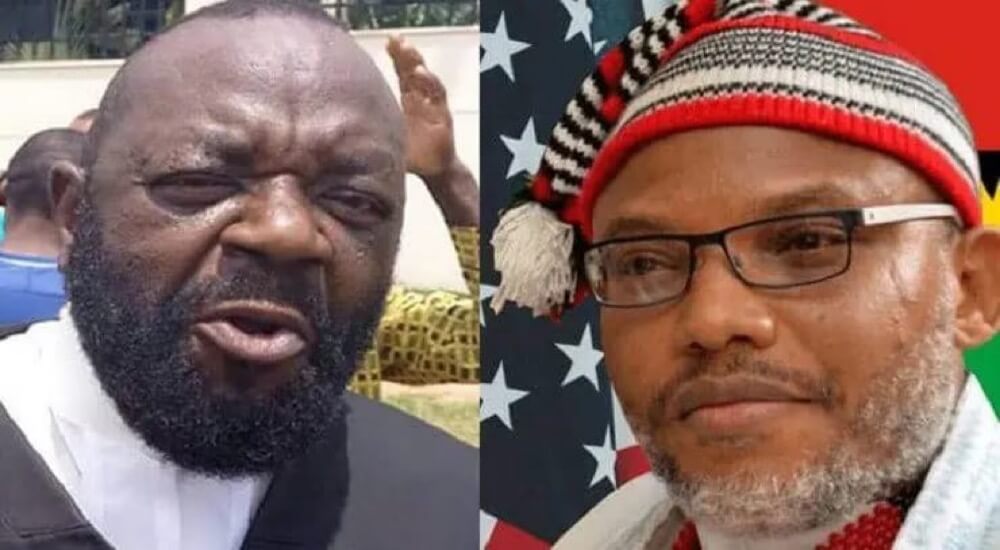IPOB: Kanu Didn’t Give Conditions For His Trial, Ejimakor Explains
The leader of the Indigenous People of Biafra, Mazi Nnamdi Kanu, never prescribed conditions under which he would be tried in the ongoing legal battle over his alleged jumping bail in 2017, running a proscribed group and treason.
Kanu’s lead counsel, Barr Aloy Ejimakor, stated this on Friday while reacting to media reports alleging that at the last hearing of the case on 17th April, 2024, Kanu had given conditions for his trial.
Advertisement
Quoting Ejimakor, “We don’t even fancy ourselves possessing the slightest coercive wherewithal to present conditions to the court or the Nigerian State.”
He said at the last hearing, Kanu did apply to have his bail reinstated in accordance with the pronouncement of the Supreme Court on 15th December, 2023 which asserted that his bail was revoked in error.
Recall that the Supreme Court ruled that, “Kanu was on bail and therefore in custody of the law when his home was illegally invaded by heavily armed military officers of the appellant causing him to flee from his home and the country to secure his life. That is what any normal and reasonable human being would do in that circumstance to preserve his life and physical well-being.
“The appellant’s officials knew that their invasion of the respondent’s home caused him to run away to secure his life and physical well-being. Yet during proceedings in the pending criminal case against him, they applied that his bail be revoked, that a warrant for his arrest be issued and his sureties forfeit their respective bail bond and that his trial in his absence be ordered because he had jumped bail.
Advertisement
“But they knew that their illegal actions made it impossible for the respondent to be in court for his trial. In a situation such as this one, where the prosecution has taken extrajudicial actions against the defendant in a pending criminal case brought by it and made it impossible for the defendant who is on bail to be in court for his or her trial, it is wrong to treat such a defendant as having jumped bail in the sense that he is running from prosecution or running to avoid prosecution in the pending criminal case in respect of which he was granted bail.”
The apex court held that Kanu did not intentionally and knowingly fail to appear in court, adding that it was wrong and malicious for the appellant that had caused his unavoidable absence from court to inform and thereby deceived the trial court that the respondent had jumped bail.
“Therefore, the trial court knew that the said extra judicial and illegal actions of the appellant made it impossible for the respondent to be in court for his trial, that the respondent’s absence is not intentional or deliberate absence and that the respondent is not running from prosecution or running to avoid prosecution,” the Supreme Court held.
Ejimakor said it was on the basis of the above that Kanu’s legal team made “a vigorous submission on 17th April that the Federal High Court is bound to restore Kanu’s bail, as demanded by the Constitution at Section 287(1)”, quoting that: “The decisions of the Supreme Court shall be enforced in any part of the federation by all authorities and persons, and by courts with subordinate jurisdiction to that of the Supreme Court’.”



